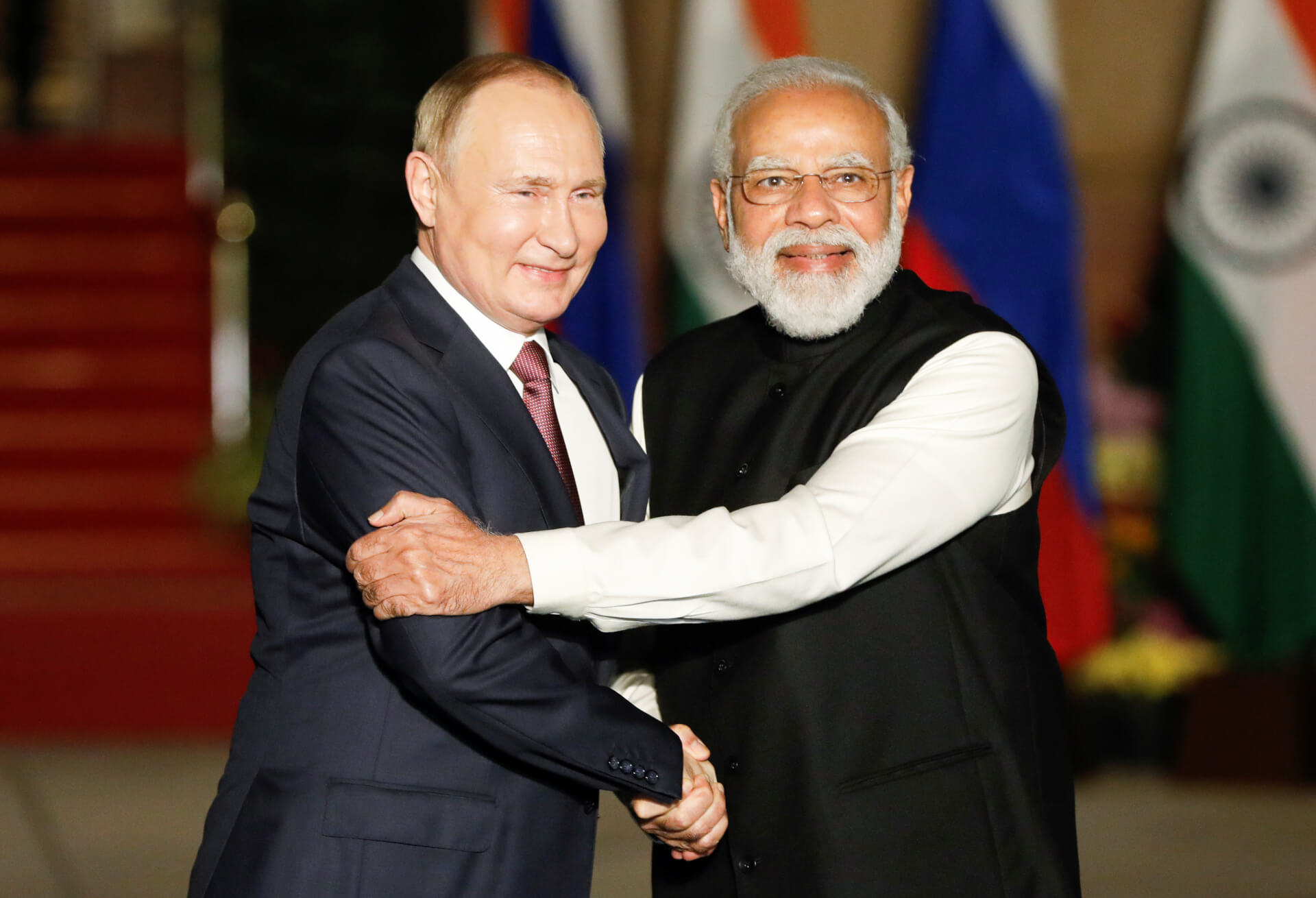In a phone call on Friday, Russian President Vladimir Putin informed Indian Prime Minister (PM) Narendra Modi about the “key aspects” of Russia’s war in Ukraine, reassuring the Indian leader that the aim is to incapacitate Kyiv’s military infrastructure and not to target civilians.
According to the Kremlin’s press release, Putin highlighted the “dangerous and provocative nature” of the Ukrainian ‘regime’ under President Volodymyr Zelensky as well as the support Kyiv is receiving from “Western patrons” to “escalate the crisis and disrupt efforts to resolve it politically and diplomatically.”
Prime Minister Narendra Modi had a telephone conversation today with Vladimir Putin, President of the Russian Federation. They exchanged ideas on how bilateral trade in agricultural goods, fertilizers and pharma products could be encouraged further. Global issues discussed. pic.twitter.com/aGw7Om2eqK
— Aditya Raj Kaul (@AdityaRajKaul) July 1, 2022
He stressed that Russia has “no plans of occupying Ukrainian territories,” and that the objective of the “special military operation” is merely the “denazification and demilitarisation” of the country.
Meanwhile, according to the Indian release on the discussion, Modi stressed India’s “long-standing” support for “dialogue and diplomacy.”
Kremlin readout of PM Modi- Prez Putin Talks:
— Sidhant Sibal (@sidhant) July 1, 2022
Focus on
--Food, Trade, Energy issues discussed
--Sanctions on Russia, Russo- Ukraine conflict https://t.co/Ki7UW569tM pic.twitter.com/UXp7eirv6G
The pair also discussed the progress made in realising the agreements reached during Putin’s visit to India in December 2021, particularly in the agriculture, fertilisers, and pharmaceutical industries. In this regard, Putin celebrated the “mutually beneficial” economic ties and the “significant increase in bilateral trade,” including in agricultural products.
To this end, Putin and Modi spoke of the ongoing global food crisis, which has led India to impose a temporary wheat export ban. Putin highlighted the “systemic mistakes” made by Western countries, including sanctions on Russia, that have caused the “violation of the entire architecture of free trade in food products.” He noted, “Illegitimate sanctions against Russia have exacerbated an already difficult situation.”
He asserted that these same punitive measures have also had a “negative impact” on the global energy market, noting a huge spike in prices across the globe.
I warmly thank H.E. President Putin for his visit to India. We exchanged very useful ideas for expanding our strategic, trade & investment, energy, connectivity, defence, science & technology and cultural cooperation. We also shared views on important global and regional issues. pic.twitter.com/FQGFgQzsfX
— Narendra Modi (@narendramodi) December 6, 2021
Nevertheless, Putin reassured Modi of Russia’s reliability as a producer of supplier of grain, fertilisers, and energy.
Since the military invasion into Ukraine on February 24, Modi and Putin have had three such discussions—on February 24, March 2, and March 7. Their interactions have largely centred around India’s efforts to bring Indian nationals back from Ukraine, particularly its students. Though all Indian citizens have now successfully been repatriated, Putin at the time alleged that Ukraine was using Indians as “human shields” and thereby preventing their evacuation to Russia.
Modi, meanwhile, has consistently called for an end to violence and urged both sides to pursue the path of diplomacy and even put India forward as a potential mediator.
Fossil fuels purchased from Russia since the invasion of Ukraine ...
— Wall Street Silver (@WallStreetSilv) July 1, 2022
Who are the biggest hypocrites?
Sound optional pic.twitter.com/HAcREvH3J4
Friday’s call with Putin reaffirmed India’s continued desire to maintain a largely neutral stance on the war, wherein it has called for peace but refused to outright blame Russia or impose any form of punitive measures, despite overwhelming pressure by the United States and other Western allies.
India has abstained from voting on resolutions in both the United Nations General Assembly and the United Nations Security Council that have sought to condemn Russia’s military actions in Ukraine and called for a withdrawal of its troops.
In fact, India has continued to maintain trade relations with Russia and even made the decision to purchase heavily discounted oil from Russia; it has already imported over 60 million barrels of oil from Russia this year. It has also continued to import critical defence equipment, including the S-400 missile system.

